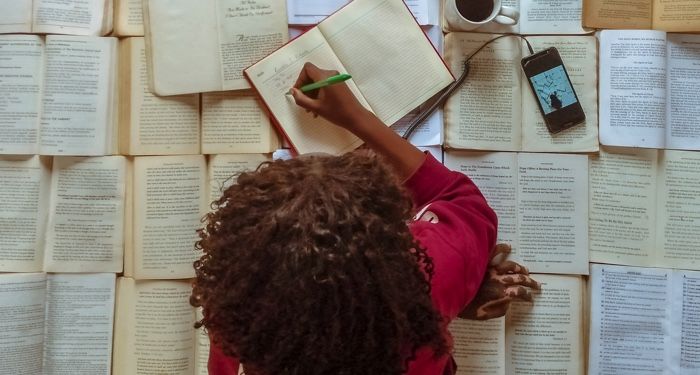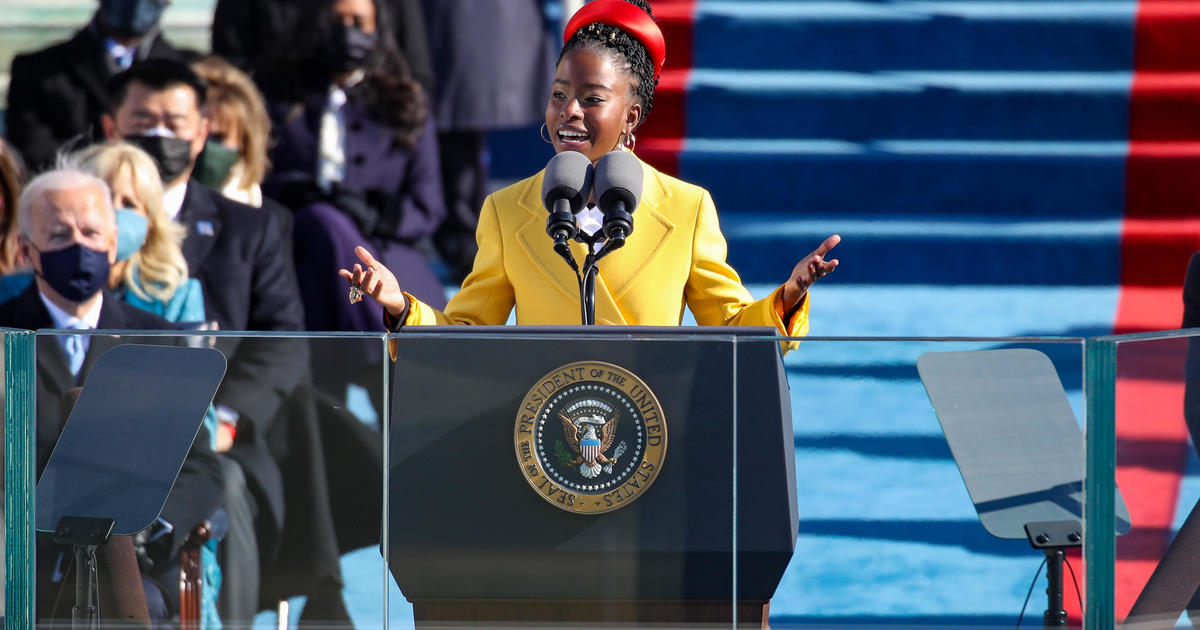
Aron Aji, a literary translator and professor at the University of Iowa, runs a Facebook group called Literary Translation with more than 4,300 members from 99 countries. For the most part, the group is an active, amiable one where linguaphiles help one another with translator minutia. A post, for instance, asking for the English equivalent of the French word “banlieusard” yielded 177 responses. (There was no real consensus, but suggestions included “the hood,” “projects” and “ghetto.”)
But events last month sent the Facebook group — and the little known, underappreciated world of literary translation — into commotion, resulting in heated exchanges about issues of race and equity in the business.
It stemmed from news regarding the commissioned translations of Amanda Gorman’s “The Hill We Climb.” After the young Black poet recited her stirring poem at President Biden’s inauguration in January, the rights were picked up by Penguin Random House, and the poem is set to be translated into more than a dozen languages.
In March, news broke that two of Gorman’s selected translators would no longer be working on the project. The Dutch translator, Marieke Lucas Rijneveld, stepped aside after critics questioned why someone with an identity closer to Gorman’s was not selected. Shortly after, Gorman’s Catalan translator, Victor Obiols, was informed his completed translation would not be used, because, as a White man, he “was not suitable to translate it,” he told Agence France-Presse.
“The upper echelon of the translation industry or the translation market quickly fixed the problem, right? Pull somebody out, put somebody in,” said Aji, who translates from his native Turkish to English. “They’re already done with this, but we are now churning inside ourselves.”
On his Facebook group, Aji found himself moderating like he never had before. There were 1,600 comments within a week, a handful toxic enough that he removed them. Debates ensued about whether the choice of a translator should be only merit-based or whether identity should play a part. Another thread was about publisher practices and how translators are chosen. Some White translators who have spent their careers translating writers of color into other languages questioned their own pursuits.
“They asked, am I not supposed to be doing this. Am I wrong?” Aji said.
Achy Obejas, a Cuban American translator said that although there are no easy answers, there is also no question that a translator’s identity has an impact on the translation.
A few years ago, she discovered a Spanish translation of Toni Morrison’s “Beloved,” published by DeBolsillo and bought the $5.99 Kindle version; the word “slave” is translated as “serviente” — “servant.” The N-word is rendered as “Negros” or “blacks.”
“That is major,” said Obejas. “That is not a detail. That is not a minor point.” Moreover, Obejas found that Morrison’s African American vernacular was completely erased in the Spanish translation.
“There’s no possibility of understanding from hearing these characters talk that they’re Black, and this is so essential to any Toni Morrison story,” she said. The book names no translator, but someone who had more familiarity with the Black communities of the Spanish-speaking world may have better preserved Morrison’s voice, Obejas said.
Obejas, who was sought out by the writer Junot Diaz to translate his Pulitzer Prize-winning 2007 novel, “The Brief Wondrous Life of Oscar Wao,” said she thinks carefully before taking on a project, assessing first whether she can do the translation authentically.
“You may be utterly fluent in Spanish, you may be a master speaker, you may be a member of the Royal Academy. Doesn’t matter. It doesn’t mean that you can translate a book featuring Peruvian drag queens,” she said.
Diaz, who is Dominican American and of African descent and reads Spanish fluently, said that he liked the Spanish translation of his first book, a story collection, but he knew he wanted a Caribbean translator the second time around for “Oscar Wao.”
“I said, listen, I want a Caribbean. They can be from Jamaica, they can be from Puerto Rico, but it has to be someone who has lived the Caribbean experience,” he said. “An immigrant, all the better, a person of African descent, all the best.”
While working on the book, Obejas listened to Dominican talk radio daily and consulted both Diaz and Dominican friends about specifics. The translation, Diaz said, was a successful one.
A good translation conveys the “untranslateables,” or what is being conveyed without actually being explicitly written, Diaz said. “What I’m always looking for is someone who has the depth that comes from experience.”
Unlike Diaz, most authors have no control over selecting their translators. The rights are sold, and the publisher abroad handles the rest. The writer R.O. Kwon, who is Korean American, said she loves the idea of people closer to her own identity translating her work, though the task of identifying someone might be challenging.
“Finding a translator who is Korean Polish is less likely,” she said. “That said, I love it. Maybe that’s something with the next book I’ll say, just find someone.”
One of the major publishers of translated literature is Amazon Crossing which, since its launch in 2010, has published 400 books by authors from 44 countries writing in 26 languages. (Amazon chief executive Jeff Bezos owns The Washington Post.)
“It’s always wonderful when the translator has a personal connection to the creative project,” said Gabriella Page-Fort, editorial director at Amazon Crossing. The French-English translator Lara Vergnaud, who was born in Tunisia and raised in the United States, connected with her family roots while translating Yamen Manai’s novel “The Ardent Swarm,” Page-Fort said.
Ilan Stavans, the publisher of Restless Books, a small publishing house that focuses on translating world literature for English-speaking audiences, said translators should be selected based on sensibilities, not their identity.
“In fact, to me that seems to be antithetical to the very approach of translation,” Stavans, himself a translator, said. “Translation is an attempt to bridge beyond identity, beyond cultures, bringing someone, something that is very different from us, into our own ecosystem”
Still, he agreed that it is important to provide opportunities to translators from underrepresented groups.
And the very White landscape of literary translation in America is something that no one can deny. A recent survey by the American Literary Translators Association found that, out of 362 responding members, 73 percent of translators identify as White.
“The reasons for that are structural,” said Elisabeth Jaquette, a translator and the executive director of the association, who pointed to an industry that does not tend to pay well. “White translators who are in positions of privilege can take on unpaid work at the beginning to make a name for themselves.”
This puts heritage speakers — those who might acquire language skills informally through their immigrant parents — and translators of color at a disadvantage.
This gap makes itself apparent in the formal pathways to translation. Since 2015, the MFA in literary translation program at the University of Iowa has offered a diversity fellowship but, in the fellowship’s history, only one student — an Asian American — has availed of the fellowship, even though Aron Aji, who directs the program, advertises the fellowship as widely as he can, including on his Literary Translation Facebook group. This coming fall, an African American student will hold the fellowship for the first time.
In the fall of 2022, Aji and his colleagues also will launch a free-standing bachelor’s program in literary translation at Iowa. Currently, most American universities that offer literary translation at the bachelor’s level do so only through a certificate or a minor.
Aji and his colleagues plan to recruit at high schools across Iowa and beyond, where he says there is an untapped market of future translators — the children of immigrants.
“Many of them are first-generation American students,” Aji said. “They have been serving as amateur translators to their families, taking them to the hospital or doctor or driver’s license exam. Translation is not unknown to them, it comes naturally.”
books-translations






